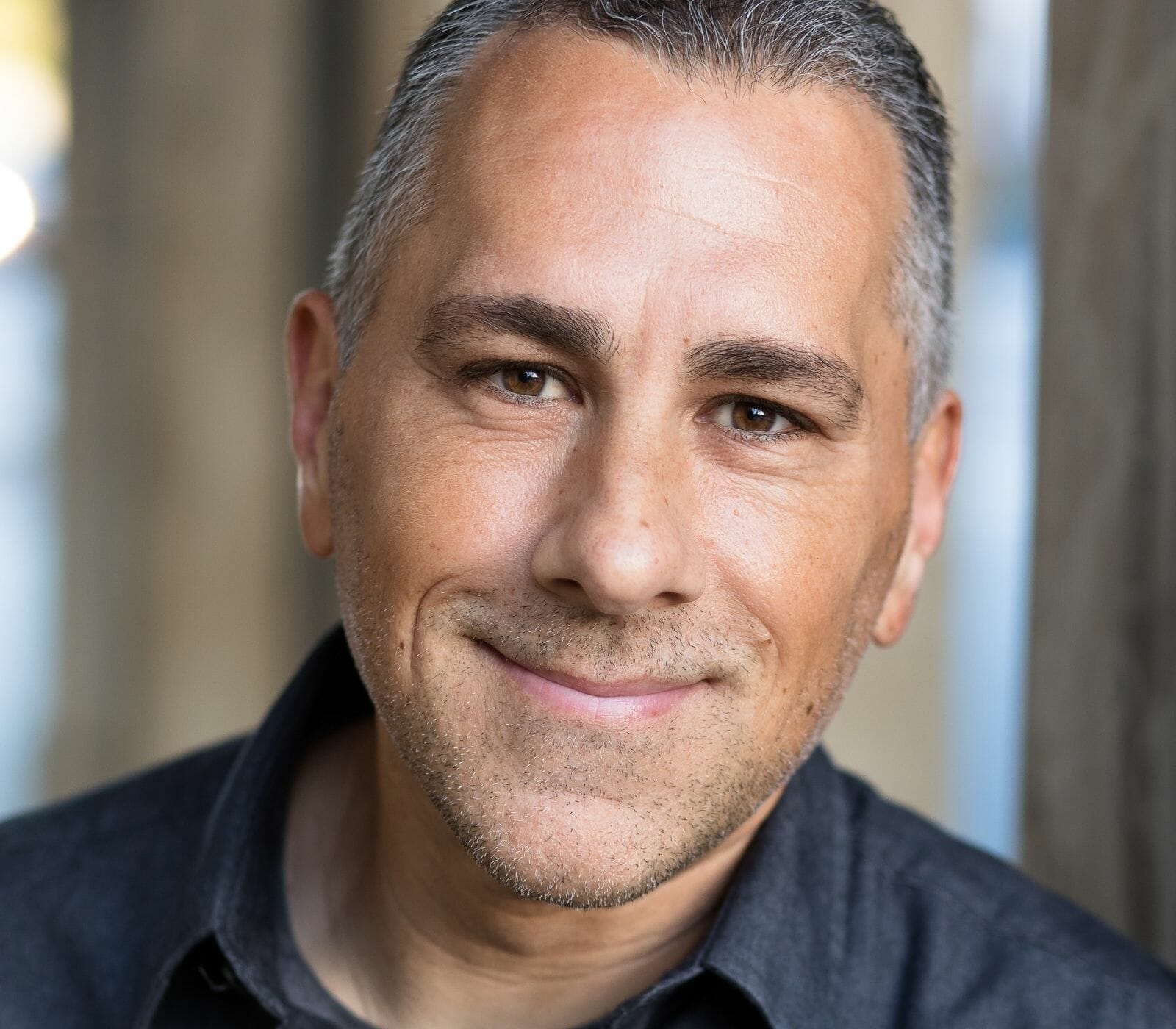John Pavlovitz: If God Is Love, Don’t Be A Jerk

John Pavlovitz is a pastor, writer, and activist from Wake Forest, North Carolina. He’s spent nearly three decades teaching, studying, dissecting, deconstructing, and reconstructing the Christian faith. Committed to equality, diversity, and justice, John aims to teach a single, elemental truth: Faith in a supernatural being should make you a better human being. John’s latest book is If God Is Love, Don’t Be A Jerk.
An Interview with John Pavlovitz: If God is Love, Don’t be a Jerk (Thou Shalt Not Be Horrible).
Interview by Victor Fuhrman
A 25-year veteran in the trenches of local church ministry, John Pavlovitz is committed to equality, diversity, and justice—both inside and outside faith communities. When not actively working for a more compassionate planet, John enjoys spending time with his family, exercising, cooking, and having time in nature. He is the author of A Bigger Table, Hope and Other Superpowers, Low, and Stuff That Needs to Be Said.
To listen to the full interview of John Pavlovitz by Victor Fuhrman on Destination Unlimited on OMTimes Radio, click the player below.
 Victor Fuhrman: John, you opened your book “If God is Love, Don’t be a Jerk” by referring to yourself as a long-time Christian by aspiration. If not, always by practice, please share your early path, how it led to your calling, and your unique definition of your spirituality.
Victor Fuhrman: John, you opened your book “If God is Love, Don’t be a Jerk” by referring to yourself as a long-time Christian by aspiration. If not, always by practice, please share your early path, how it led to your calling, and your unique definition of your spirituality.
John Pavlovitz: I grew up in the Roman Catholic faith, which was a huge part of my life growing up. And as many people do, I began to sort of stretch my spiritual muscles as I entered college and wanted to have faith that I could claim for my own and went through the searching process and kind of meander in and out of organized religion during that time. My story was, really, one of being surprised by a calling into ministry. I was doing some volunteer work for a church where I was married. I just had found that I had this Love for working with teenagers. And as I began to teach them about a faith that I didn’t really have at the time, my faith began to grow. So that set me down a path of ministry life for the past two and a half decades in various forms.
Victor Fuhrman: So, what do you say Christian by aspiration, if not always in practice?
John Pavlovitz: Well, I think it’s presumptuous to call myself a Christian because that means that I am replicating Christ or emulating Christ. That’s always the goal. The teachings of Jesus are still central to my life. So those are things that I hope to live into, but I realize it’s a matter of getting as much right as you can that every day and then getting up the next day and doing it all over again. And so, realizing that we are all works in progress. So, I embrace that and don’t shy away from it.
Victor Fuhrman: It’s our humanity that makes us that way
John Pavlovitz: It is. I think part of it was the expectation that I had when I was younger, that there was this, this standard that I could never reach. And it left a trail of guilt. I think for many people, religion at its worst does that. But then, when I embraced the best part about spirituality, recognizing my belovedness changed everything for me. So, my failures and my missteps are all perfectly understandable. They’re just part of the learning process.
Victor Fuhrman: If Jesus walked among us today, what would he think of his flock?
John Pavlovitz: I think he would be mystified at the mission drift of the church, the way that so many people have taken this message that 2000 years ago was this movement of empathy. It was really a movement of the street, of people living in community together, an interdependent community, and then how it became something that leverages power so often. I think it would be largely unrecognizable that large church. I think what Jesus would be looking for would be the small and close relationships where people are still trying to live in their communities with compassion leading.
Victor Fuhrman: You’ve shared that he might say, what didn’t you understand, or what didn’t you get?
John Pavlovitz: Yeah. The greatest commandment to love God, and love your neighbor as yourself, and the idea that that’s the one job you have and if you miss Love, you’ve missed the elemental part of what I was trying to ask you to do, uh, at this, you know, during, during your life here. And that is the main thing I try to make sure I get up every day and that I am an agent of generosity, kindness, and empathy. And if not, the book that I’ve written really states that if your faith doesn’t make you more compassionate, then what’s the point of it? That it’s really of no use to you or to people who encounter you.
Victor Fuhrman: This is the fifth book you’ve written about religion and politics, race and grief, and all sorts of social justice issues. What fueled the creation of this particular book at this specific time?
John Pavlovitz: Well, Victor, I was writing a very different book. It dealt with some of the same issues, but it diagnosed this toxic religion. And as I began writing, I started writing in March of 2020. And of course, you, what started to happen with this, this news story off in the distance about this little public health issue, and it got larger and larger, and I couldn’t avoid it any longer. So as 2020 kind of wound on, I was looking around at people’s response to the pandemic and looking at the strife over the Black Lives Matter protests and counter-protests and the coming election. I was seeing so much Enmity, and it was coming from so many people who claim the same Christian faith that I claim.
So, there was grieving in there, and I felt I needed to respond in real-time to it. So that shaped a very different book. It is a book that I think is much more visceral and intimate than it would’ve been any other way. And it became a journal, a travel diary of living through this time, through the lens of my spirituality.
Victor Fuhrman: Why did you choose the title? So, if God is Love, don’t be a jerk instead of if God is Love, Love people?
John Pavlovitz: Yeah. I think my aspirations for humanity had become really pedestrian. I think I was. I was looking around, looking at a group of people that I thought were so far from the original plot of Jesus that I said, well, if I can’t get them to love, maybe I can get them not to harm if we could start there, at that really elemental place of not wanting to injure people—having people examine the ways that their blind spots and their prejudices and phobias have leaked into their religion and are doing damage.
If we can do some of that work, we can move to a place of understanding and then of Love. So part of it was a little bit of tongue in cheek, a take on that message, but also just saying, let’s start there, let’s start. And then we’ll work our way toward that deeper Love.
Victor Fuhrman: You have a wonderful sense of humor. So don’t be a jerk as part of that. And just to give the listeners an idea, some of your chapters have headings: The church of not being horrible, God fund me and love your damn neighbor. I love your Titles!
John Pavlovitz: I think it’s important because the work that I do and the themes that I write are often very heavy, and people may have the misconception that I am a heavy human being that I’m always frowning and carrying this sort of dread. I’m really not. There’s a joy to life. I make love living, and I love people. So I wanted to make sure that that was part of this story and a part of this book that people could laugh amid really important conversations.
Victor Fuhrman: I attended interfaith seminary in the 1990s. And in my interfaith studies, I found that virtually every faith has some form of the golden rule. Have some Christians forgotten this, and how may it be remembered and embraced?
Continue to Page 2 of the Interview with John Pavlovitz
OMTimes is the first and only Spiritually Conscious Magazine. Follow Us On Facebook, Twitter, Instagram, Linkedin, Pinterest, and Youtube
Rev. Victor Fuhrman, MSC, is a healer, spiritual counselor, and author whose deep, rich, compassionate and articulate sound inspired the radio handle, “Victor the Voice”. A former armed forces broadcast journalist, Victor Fuhrman is a storyteller by nature and an inspiring public speaker. He brings unconditional love, compassion and a great sense of humor to his ministry. Victor is the Host of Destination Unlimited on OMTimes Radio, Wednesdays at 8:00 PM ET. http://omtimes.com/iom/shows/destination-unlimited/





